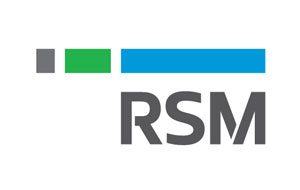‘RSM Australia has identified a number of key areas that SMEs should focus on in 2016:
1. Future trends – new and emerging technology helps smaller businesses streamline processes and transform sales processes from passive to proactive. SME owners who research the solutions available and choose the right one for their business needs will be ahead of the curve. Social and mobile technologies as well as cloud and big data are key areas for investment. Additionally, some technologies that were previously only available to large enterprises are now becoming more cost-effective, making them attractive to SMEs. These include cloudbased applications such as enterprise resource planning (ERP), customer relationship management (CRM), and even business intelligence tools. Such tools can rapidly improve operational decisions, making businesses more successful.
2. Plan – Complete a business plan. RSM Australia’s 2015 think BIG survey revealed that 64 per cent of businesses surveyed in 2014 believed their businesses would grow in the next 12 months. The 2015 survey revealed that only 49 per cent of businesses actually achieved revenue growth. The important differentiator between companies that grew and those that didn’t was whether or not they completed a business plan. Of those companies that completed a business plan, 56 per cent achieved growth compared with 36 per cent of those that did not complete a business plan. In an uncertain economic climate, smaller businesses are often the ones to suffer first. Those that have a strong, well-considered business plan in place will find themselves more able to weather the storm.
3. Product and Services – Review and tailor your offering to appeal to changing market demands and needs. What’s working – keep doing that, what’s not working – stop doing that and what new products and services could you offer?
4. Pricing structures – ensure competitiveness and profitability. Put formal procedures in place to monitor and proactively respond to competitor pricing changes.
5. Stock levels – make sure you can satisfy customer demand for profitable product and service lines, and identify slow-moving stock that can be liquidated quickly to generate cash.
6. Sales, marketing and promotion – are you optimised to achieve the best results. Ensure all staff are aware of the targets for each week and be proactive in addressing shortfalls.
7. Staff – review staffing plans and confirm acceptance of the rosters by all staff. For non-retail businesses, annual leave plans need to be balanced and finalised as early as possible to ensure the business continues to operate effectively.
8. Protect yourself – review fraud and theft protection systems and ensure all staff are reminded of their responsibility to be vigilant as customer traffic increases and the pressures of Christmas expectations can motivate increased customer and staff theft.
9. Debtors – actively chase all overdue accounts.
10. Financial products -overdrafts, premium funding, lease facilities and cash flow funding products can all be excellent tools to help match a business’s cash supply with planned outlays.


For further information, please contact Andrew Sykes, Director at RSM, on [email protected] or 6217 0300

